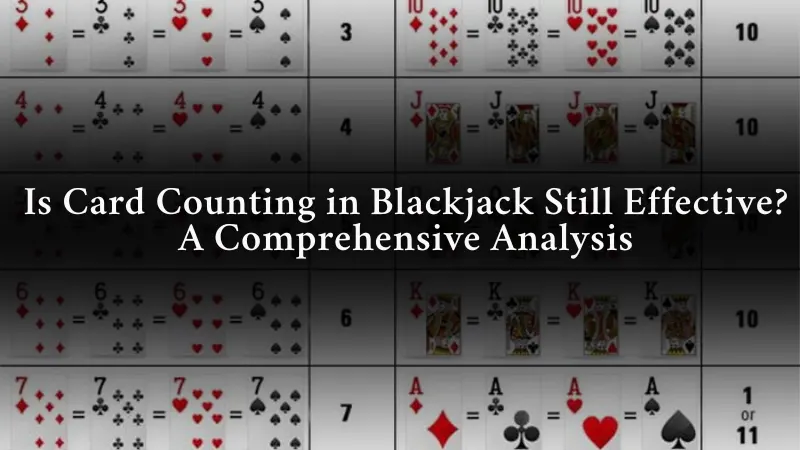Blackjack stands as one of the most popular casino games worldwide, captivating players both in traditional brick-and-mortar establishments and modern online platforms. Unlike pure games of chance, Blackjack offers a unique blend of strategy and probability that has attracted mathematicians, casual players, and professional gamblers alike for decades. The game’s appeal lies in its deceptively simple rules combined with the complex strategic decisions that can significantly impact outcomes.
Among the various strategies developed for Blackjack, card counting has emerged as perhaps the most famous and controversial technique. Once hailed as the ultimate weapon against the house edge, card counting gained legendary status through movies, books, and stories of teams who supposedly beat Las Vegas casinos out of millions. But in today’s digital age, where online casinos like 91 Club dominate the gaming landscape, a critical question arises: does card counting still hold its effectiveness?
This comprehensive analysis examines the fundamental nature of card counting, how it operates in practice, and most importantly, its current effectiveness in modern gaming environments. We’ll explore whether this time-tested strategy maintains its edge in online Blackjack platforms such as 91 Club, and provide practical insights for today’s players seeking to maximize their gaming success.
Understanding Card Counting: The Fundamentals
Card counting in Blackjack refers to a strategic technique that involves tracking the ratio of high-value to low-value cards remaining in the deck or shoe. The core principle behind this method is statistical: when more high-value cards (10s, Jacks, Queens, Kings, and Aces) remain in the undealt portion of the deck, the probability shifts in favor of the player. Conversely, when low-value cards predominate in the remaining deck, the house maintains a stronger advantage.
The most widely recognized card counting system is the Hi-Lo method, which assigns specific point values to different card ranges. Cards 2-6 receive a value of +1, cards 7-9 are assigned 0 (neutral), and cards 10-Ace receive -1. As each card is dealt, players maintain a running count by adding or subtracting these values. A positive count indicates that more low cards have been played, suggesting that high-value cards are more likely to appear in subsequent hands.
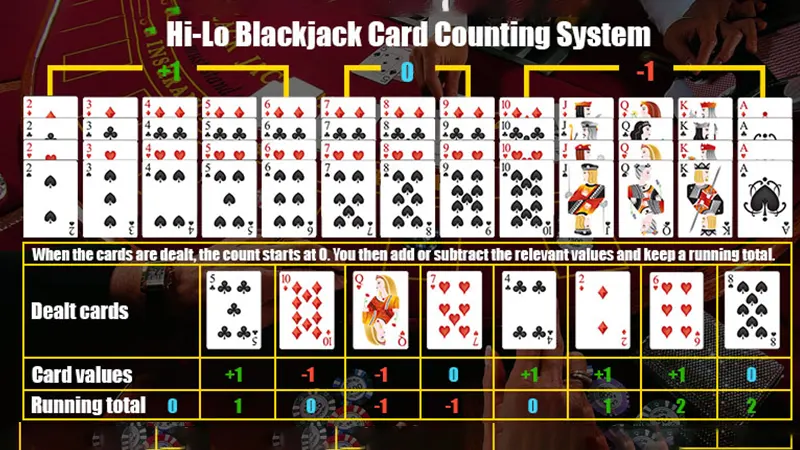
The strategic advantage of card counting lies in timing. When the count reaches significantly positive numbers, indicating a deck rich in high-value cards, experienced counters increase their bet sizes to capitalize on favorable odds. During negative counts, they minimize their wagers or even leave the table. The ultimate goal is to reduce the house edge, which typically ranges from 0.5% to 1% in standard Blackjack, and potentially gain a small statistical advantage over the casino.
However, successful card counting requires more than mathematical accuracy. Players must maintain their count while appearing natural and avoiding detection, make appropriate betting adjustments without drawing attention, and possess sufficient bankroll management skills to weather inevitable losing streaks.
Card Counting Effectiveness in Traditional Casinos
In traditional brick-and-mortar casinos, card counting can theoretically provide a modest advantage to skilled practitioners. Under optimal conditions—such as games using fewer decks, tables with favorable rules, and minimal penetration before shuffling—experienced card counters can achieve a positive expected value of approximately 0.5% to 1.5%. While this advantage appears small, it represents a significant shift from the typical house edge that favors the casino.
The effectiveness of card counting in physical casinos depends on several critical factors. Single-deck games offer the greatest potential for counters, as the removal of each card has a more pronounced impact on the remaining deck composition. Games with fewer players allow for easier tracking and more accurate counts. Additionally, the dealer’s shuffle frequency plays a crucial role—games where the entire shoe is dealt before reshuffling provide more opportunities to capitalize on favorable counts.

However, modern casinos have implemented numerous countermeasures to neutralize card counting advantages. Surveillance systems equipped with facial recognition technology can identify known card counters, while trained pit bosses watch for telltale betting patterns and behavioral cues. Many establishments use continuous shuffling machines that eliminate the concept of deck penetration entirely. Others employ multiple decks (typically six to eight) and shuffle frequently to minimize the effectiveness of counting systems.
The practical reality for card counters in traditional casinos involves significant risks beyond mathematical considerations. Even when card counting isn’t technically illegal, casinos reserve the right to refuse service to suspected counters. Professional counters often face lifetime bans from multiple properties, limiting their playing opportunities. The pressure of maintaining accurate counts while avoiding detection creates a stressful gaming environment that many players find unsustainable.
Furthermore, the financial requirements for successful card counting are substantial. Players need sufficient bankroll to weather negative variance and capitalize on positive situations when they arise. The combination of skill requirements, detection risks, and capital demands makes traditional card counting accessible only to a dedicated few.
Card Counting in Online Blackjack: The Digital Reality
The transition to online gaming platforms has fundamentally altered the landscape for card counting strategies. Most online Blackjack games, including those found on platforms like 91 Club, operate using Random Number Generator (RNG) technology that creates each hand independently. This digital framework eliminates the traditional deck-based structure that card counting strategies depend upon.
In RNG-powered online Blackjack, each hand is essentially dealt from a fresh, shuffled deck. There is no “shoe” to track, no cards removed from play, and no deck composition to monitor. The mathematical foundation of card counting—tracking the changing ratio of high to low cards—becomes irrelevant when every hand starts with identical probabilities. Players attempting to count cards in standard online Blackjack games are essentially counting random numbers, providing no strategic advantage whatsoever.
The speed of online play further compounds the ineffectiveness of traditional counting methods. Online games can deal hundreds of hands per hour, far exceeding the pace of physical casino games. Even if card counting were theoretically applicable, the rapid-fire nature of digital games would make accurate count maintenance virtually impossible for most players.
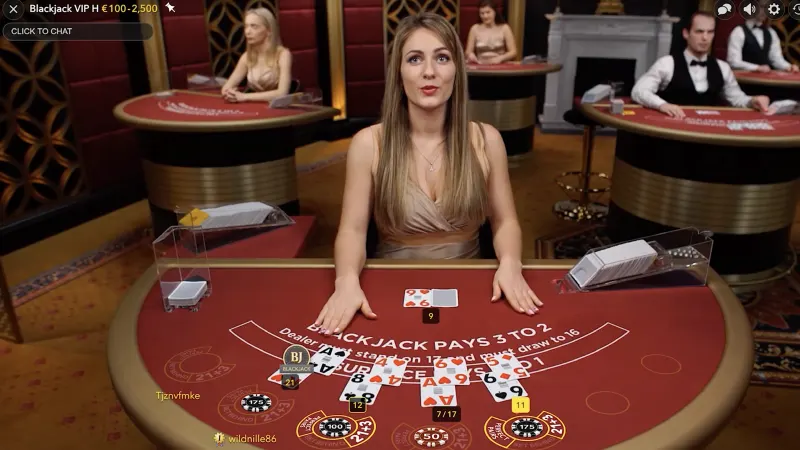
However, the online gaming landscape does include one notable exception: live dealer Blackjack games. Platforms like 91 Club often feature live casino sections where real dealers use physical cards and interact with players via video streaming. These games attempt to recreate the traditional casino experience in a digital format.
In live dealer games, the theoretical foundation for card counting exists since physical cards are used and removed from play. However, practical application remains extremely challenging. Most live dealer setups use multiple decks (typically six to eight shoes), reducing the impact of individual card removal. The cameras and digital interface make betting pattern analysis easier for operators to detect. Additionally, many live dealer games shuffle frequently or use continuous shuffling machines, further limiting counting opportunities.
The online environment also introduces unique detection capabilities unavailable in traditional casinos. Digital platforms can analyze betting patterns with perfect accuracy, tracking every wager size change and correlating it with game conditions. This level of data analysis makes it virtually impossible for card counters to operate undetected in online environments.
Alternative Strategies: Beyond Card Counting
Given the limited effectiveness of card counting in modern gaming environments, particularly online platforms, players should focus on proven strategies that provide consistent value. The most fundamental and universally applicable approach is mastering basic strategy—a mathematically derived set of optimal decisions for every possible hand combination against each dealer upcard.
Basic Strategy represents the gold standard of Blackjack play, providing clear guidance on when to hit, stand, double down, split pairs, or surrender based on mathematical probability. Unlike card counting, Basic Strategy works equally well in online and traditional casino environments because it doesn’t depend on deck composition or card tracking. Players who master basic strategy can reduce the house edge to approximately 0.5% or less, depending on specific game rules.
Proper bankroll management constitutes another crucial element often overlooked by players focused on complex counting systems. Establishing win/loss limits, determining appropriate bet sizes relative to total bankroll, and maintaining discipline during both winning and losing streaks significantly impacts long-term success. These money management principles apply universally across all gaming formats.
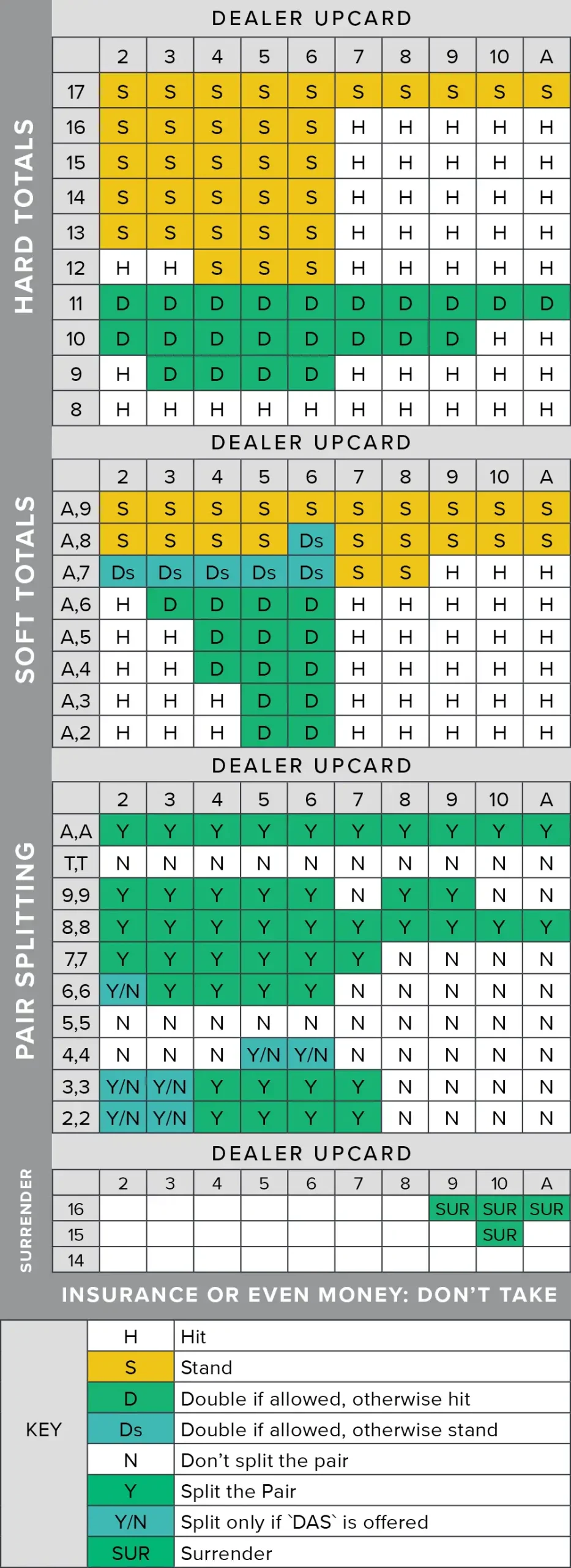
Progressive betting systems like Martingale or Paroli offer structured approaches to bet sizing, though they carry inherent risks. The Martingale system doubles bets after losses, attempting to recover previous losses with a single win. While mathematically sound in theory, it requires substantial bankroll and faces table limit constraints. The Paroli system takes the opposite approach, increasing bets after wins to capitalize on winning streaks while limiting loss exposure.
Card counting alternatives specific to online play include tournament strategies, bonus optimization, and game selection based on rules variations. Many online platforms offer Blackjack tournaments with different strategic considerations than cash games. Understanding bonus terms and conditions can provide additional value, while selecting games with favorable rules (such as dealer stands on soft 17, double after split allowed, or surrender permitted) can significantly impact expected returns.
For players on platforms like 91 Club, focusing on these proven alternatives provides more reliable value than attempting ineffective card counting strategies. The combination of solid basic strategy, disciplined bankroll management, and smart game selection offers a sustainable approach to Blackjack success in the digital age.
Practical Recommendations for Modern Blackjack Players
Based on the comprehensive analysis of card counting effectiveness across different gaming environments, several key recommendations emerge for contemporary Blackjack players, particularly those engaging with online platforms like 91 Club.
First and foremost, invest time in mastering basic strategy rather than pursuing card counting techniques. The return on investment for learning basic strategy far exceeds that of card counting in today’s gaming landscape. Basic strategy provides immediate, measurable improvement in game outcomes and applies universally across all Blackjack variants and platforms. Players can achieve near-optimal play through dedicated study and practice, reducing the house edge to its minimum level regardless of whether they’re playing online or in traditional casinos.
Develop robust bankroll management skills as a foundation for long-term success. Establish clear financial boundaries before beginning any gaming session, including predetermined loss limits and realistic win goals. Calculate appropriate bet sizes based on total available bankroll—generally no more than 1-2% of total funds per hand for recreational players. This conservative approach ensures sustainability during inevitable losing streaks while preserving capital for favorable opportunities.
For players interested in live dealer games on platforms like 91 Club, understand that while the theoretical foundation for card counting exists, practical application remains extremely difficult. The combination of multiple decks, frequent shuffling, digital monitoring, and rapid play makes traditional counting methods largely ineffective. Instead, focus on selecting live dealer games with favorable rules and maintaining optimal basic strategy play.
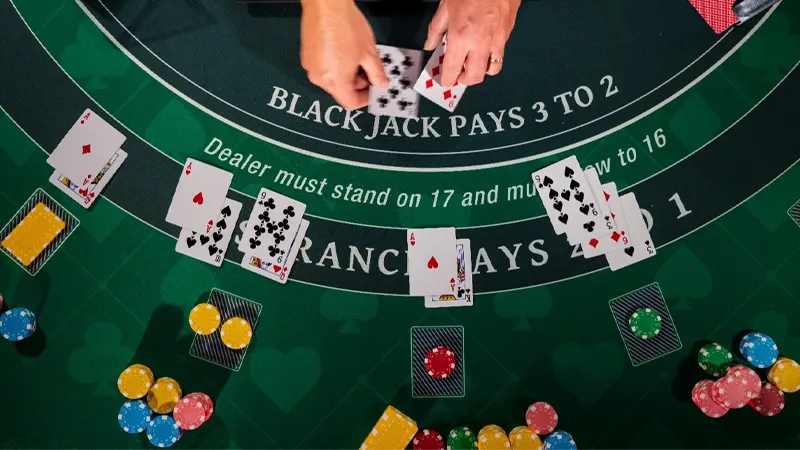
Recognize the importance of game selection in maximizing expected returns. Different Blackjack variants offer varying house edges based on their specific rules. Seek games that allow doubling after splitting, permit surrender, require dealers to stand on soft 17, and offer 3:2 payouts for natural Blackjacks. Avoid variants with unfavorable rules such as 6:5 Blackjack payouts or restrictions on doubling down.
Maintain realistic expectations about gambling outcomes and avoid chasing “guaranteed winning systems.” No strategy, including perfect card counting, can overcome the fundamental mathematics of casino games in the long term. Approach Blackjack as entertainment with the potential for modest profits rather than a reliable income source.
Finally, embrace responsible gaming practices by setting time limits, taking regular breaks, and never gambling with money needed for essential expenses. The most successful long-term players view gambling as a recreational activity with associated costs, similar to other forms of entertainment.
The Modern Reality of Blackjack Strategy
The comprehensive examination of card counting effectiveness reveals a clear conclusion: while this strategy once held promise in traditional casino environments, its practical value has diminished significantly in the modern gaming landscape. For players engaging with online platforms like 91 Club, card counting provides minimal to zero strategic advantage due to RNG technology and the independent nature of each dealt hand.
The evolution of gaming technology has fundamentally altered the strategic landscape of Blackjack. Traditional casinos have implemented sophisticated countermeasures that make card counting increasingly difficult and risky, while online platforms have largely eliminated the mathematical foundation upon which counting strategies depend. Even in live dealer games that use physical cards, the combination of multiple decks, frequent shuffling, and enhanced monitoring capabilities severely limits counting effectiveness.
Rather than pursuing obsolete counting techniques, modern players should focus on proven, universally applicable strategies. Mastering basic strategy provides immediate and lasting value across all gaming formats. Combined with disciplined bankroll management and intelligent game selection, these fundamental approaches offer the most reliable path to Blackjack success in today’s environment.
For those interested in experiencing Blackjack on platforms like 91 Club, the emphasis should be on developing solid foundational skills, understanding game mathematics, and maintaining responsible gaming practices. The romantic notion of beating the casino through card counting may persist in popular culture, but the practical reality favors players who embrace proven, sustainable strategies.
The future of Blackjack success lies not in attempting to revive outdated advantage play techniques, but in mastering the timeless principles of optimal play, financial discipline, and realistic expectations. Players who adopt this approach will find greater enjoyment and better outcomes in their Blackjack journey, whether playing online or in traditional casino settings.

